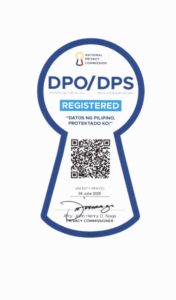What is TC?
The Therapeutic Community (TC) is an environment that helps people get help while helping others. It is a treatment environment: the interactions of its members are designed to be therapeutic within the context of the norms that require for each to play the dual role of client-therapist. At a given moment, one may be in a client role when receiving help or support from others because of a problem behavior or when experiencing distress. At another time, the same person assumes a therapist role when assisting or supporting another person in trouble.
How does TC Look Like?
The operation of the community itself is the task of the residents, working under staff supervision. Work assignments, called “job functions” are arranged in a hierarchy, according to seniority, individual progress and productivity. These include conducting all house services, such as cooking, cleaning, kitchen service, minor repair, serving as apprentices and running all departments, conducting meetings and peer encounter groups.
The TC operates in a similar fashion to a functional family with a hierarchical structure of older and younger members. Each member has a defined role and responsibilities for sustaining the proper functioning of the TC. There are sets of rules and community norms that members upon entry commit to live by and uphold.
WHAT ARE THE Salient Features of TC?
- The primary “therapist” and teacher is the community itself, consisting of peers and staff, who, as role models of successful personal change, serve as guides in the recovery process.
- TC adheres to precepts of right living: Truth/honesty; Here and now; Personal responsibility for destiny; Social responsibility (brother’s keeper); Moral Code; Inner person is “good” but behavior can be “bad”; Change is the only certainty; Work ethics; Self-reliance; Psychological converges with philosophical (e.g. guilt kills)
- It believes that TC is a place where: One can change – unfold; the group can foster change; individuals must take responsibility; structures must accommodate this; Act as if – go through the motion.
- There are 5 distinct categories of activity that help promote the change:
Relational/Behavior Management
Affective/Emotional/Psychological
Cognitive/Intellectual
Spiritual
Psychomotor/Vocational-Survival Skills
These tools serve more than just the purpose of curbing unproductive behavior. They are also a means used for enforcing community sanctions on behavior that undermine the safety and integrity of the community such as violations of the cardinal rules of TC: NO drugs, NO violence or threat of violence, NO sexual acting out and NO stealing! Everything an officer does is meant to erase “street behavior” and to lead the offender to be committed to “right living”.
When the office gives seminars and tutorials, arranges activities focused on the Higher Power, conducts games, educational trips and other recreational activities, we touch on the TC aspect of Intellectual and Spiritual Dimension. Aside from the role of a direct supervisor, the VPAs may be the invited resource persons, donors/sponsors, facilitators, lecturers, etc. during these seminars.
The skills training and livelihood activities fall within the purview of TC’s Vocational and Survival Skills, so with Medical/Dental Clinics and Environmental Conservation activities. In this aspect, the VPAs can facilitate job placement and can tap community resources for clients social and physical needs.
Therapeutic Community is a tool that the Administration uses to prepare the client for reintegration to the community as a reformed, rehabilitated, productive, drug-free and law abiding person.
WHAT IS THE TC MISSION?
To promote human and social transformation among our clients and among ourselves.
WHAT IS THE TC VISION?
By the end of this decade, TC shall have become the corporate culture of the Parole and Probation Administration permeating its plans, programs, and practices, and confirming its status as a model component of the Philippine Correctional System.





